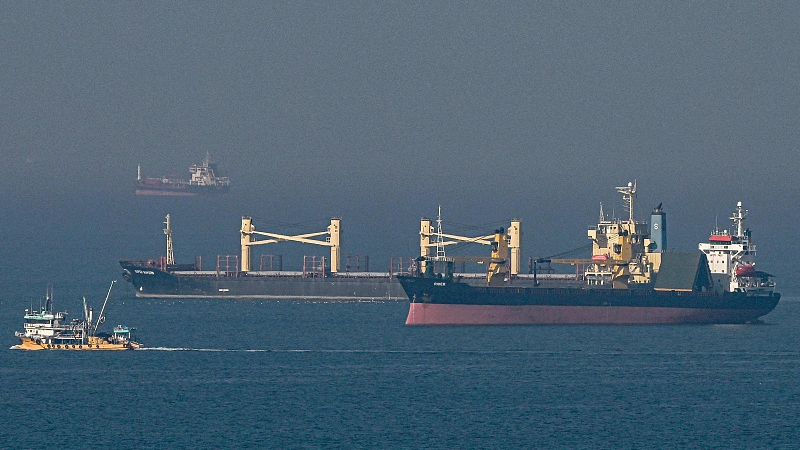
Commercial vessels are seen at the entrance of Bosphorus in the Black Sea off the coast off Kumkoy, north of Istanbul, Türkiye, November 2, 2022./CFP
Commercial vessels are seen at the entrance of Bosphorus in the Black Sea off the coast off Kumkoy, north of Istanbul, Türkiye, November 2, 2022./CFP
The United Nations continues to engage with stakeholders on the export of ammonia from Russia despite the latest sabotage of the ammonia pipeline via Ukraine, said a UN spokesman on Wednesday.
The Russian Defense Ministry said Wednesday that "a Ukrainian sabotage and reconnaissance group" blew up the Togliatti-Odessa ammonia pipeline in Ukraine's Kharkov region on Monday night.
"We're continuing to engage with the parties on the ammonia exports, regardless of what may have happened," said Stephane Dujarric, spokesman for UN Secretary-General Antonio Guterres, in response to a question on the impact of the sabotage.
"And I would just add that this is yet another reminder for the need of all parties involved in this conflict to respect international humanitarian law, especially as it relates to civilian infrastructure," he told a daily press briefing.
The spokesman said he has seen the reports and the counterclaims about what happened to the pipeline.
"I think any threat to this pipeline is indeed of concern in addition to the harm they may present for civilians and the environment in the surrounding area. Though we've seen public statements saying that there's been very little risk following what happened to the pipeline," he said.
He reiterated the importance of the resumption of Russian ammonia exports through the Odessa port under the framework of the Black Sea Grain Initiative and the broader importance of ammonia supplies in addressing food and security, especially in the developing world.
The pipeline running from the Russian city of Togliatti to the Ukrainian port of Odessa is one of the world's longest pipelines for ammonia transportation.
Source(s): Xinhua News Agency